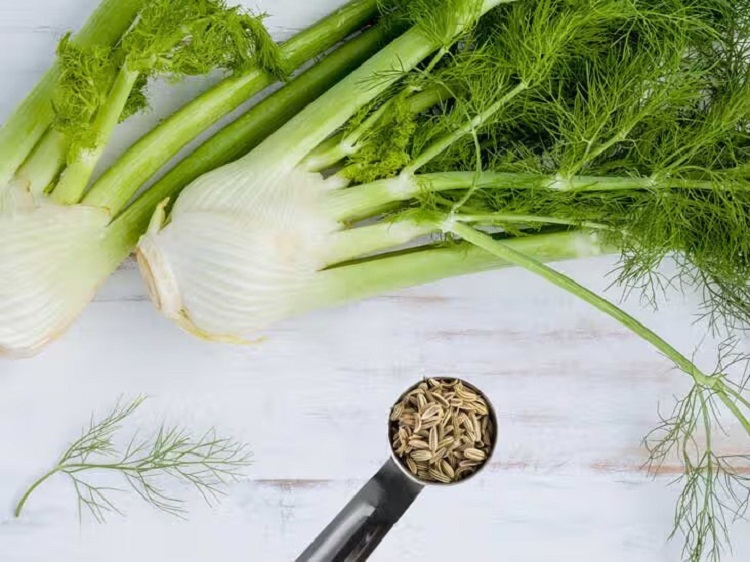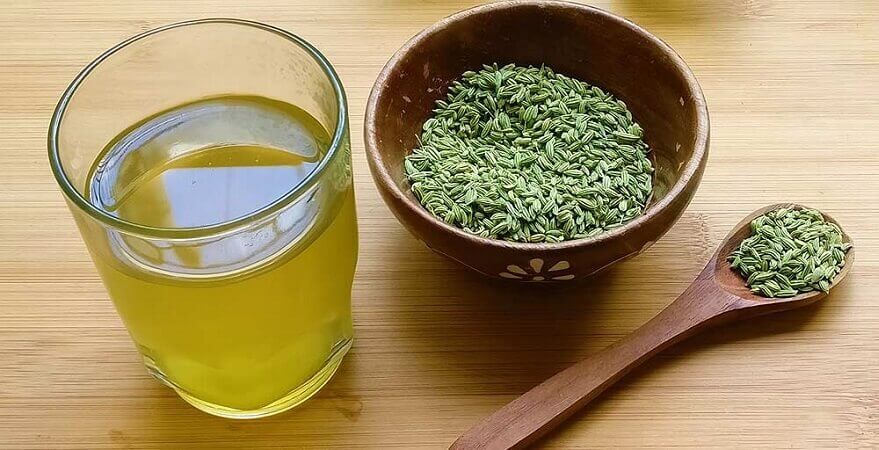Have you ever heard of a plant called fennel? And fennel, have you heard? For this last question, it is almost unanimous that the answer is yes. Well, know that they are the same species, one of the most consumed on the planet. The difference is that fennel is derived from the seeds of this plant. Fennel, leaves and flowers.
This herb, which receives the scientific name of Foeniculum vulgare Mill., is an aromatic herbaceous plant widely used in cooking, and as a medicinal plant due to its healing properties, responsible for numerous health benefits. Through its tea, it is possible to improve digestion, relieve colic in babies and fight sleep disorders.
But it is not only through tea that you can enjoy the benefits of this herb. Using fennel in recipes is a tasty and versatile way, which can yield interesting and nutrient-rich dishes.
Learn more about this plant, its benefits, how to make your tea and learn recipes with it. Good reading!
Table of Contents
5 Greatest Benefits of Fennel

The use of extracts from this plant offers several beneficial properties for the body as it has carminative action (avoids gas formation), digestive, antispasmodic (relieving colic ), mild laxative and anti-inflammatory, to name a few.
Improves digestion
Fennel seeds are used as a remedy to improve digestion. This is what guarantees a study carried out in partnership with the Ministry of Health .
Its tea is a valuable digestive, used to prevent discomfort in the upper abdomen area, described as a burning sensation, bloating, nausea or very quick satiety after starting to eat, but also against bloating.
Thus, it acts as a digestive tonic, increasing appetite, balancing gastric juices and facilitating the digestion of proteins, fats and carbohydrates. Its consumption is to prevent heavy digestion and flatulence, as well as to relieve stomach pain and discomfort arising from a bloated belly.
Fennel is even indicated as a substitute for metoclopramide, a synthetic remedy, recommended to treat disorders of gastrointestinal displacement. The same study found its effectiveness in patients with IBS, or Irritable Bowel Syndrome. To improve the digestive tract, the indication is to consume the tea of this plant during or after meals.
This drink is also very popular when it comes to constipation . This is because fennel is considered a mild laxative, absorbing water from the walls of the intestine and taking it to the fecal cake, making it more pasty and easier to eliminate.
Relieves colic in babies
The use of fennel tea is classic for babies, to avoid spasms, flatulence and colic. According to the material released by the Ministry of Health , this is one of the most prominent benefits of this plant. The carminative activity, that is, combating intestinal colic, is above all efficient in the discomfort of newborns .
This herb manages to relax the muscle contractions of the intestine, relieving the pain and other gastrointestinal discomforts of the little ones. Therefore, there are two ways to resolve the baby’s colic using fennel. It is known that up to six months, the baby should not ingest any liquid or food, only breast milk, in this case it is recommended that the mother drink the tea, in this way the benefits of the plant will pass to the breast milk.
Consumption should be done directly, but without exceeding the daily limit if the baby is older than 6 months. Boil a cup of water, turn off the heat, and add 1 or 2 tablespoons of the herb. Cover and let stand for 15 minutes. Divide the drink into 3 or 4 servings and offer the child throughout the day.
Although widely used in children, the treatment of colic from this tea is also useful for adults.
It’s anti-inflammatory
This drink is also widely regarded as anti-inflammatory, especially because it is composed of numerous antioxidants. These substances are capable of delaying or suppressing the deterioration of healthy cells from oxidation caused by free radicals. Therefore, it is popularly used to prevent cancer and to treat inflammatory diseases such as arthritis and rheumatism.
Calm down
In material released by the Ministry of Health, the calming effects of the fennel extract were highlighted. “Some neurological disorders such as anxiety and sleep disorders are traditionally treated with fennel.” These activities described for the herb match those found in the scientific literature, where the plant is mentioned to calm nervous excitement and combat insomnia .
Does fennel tea lose weight? deflate

Yes . In fact, weight loss happens indirectly. Let’s explain!
According to a study carried out at the Federal University of Pernambuco (UFPE), fennel is a diuretic , that is, it increases the production and elimination of urine. This is an important mechanism to combat fluid retention in the body , especially in the abdominal region. In a few days of use, it is possible to notice the reduction in body measurements, but not exactly because you lost weight, but because your body deflated.
How to make fennel tea
Ingredients
- 1 cup of water
- 2 tablespoons of fennel leaves, or 1 teaspoon of seeds.
Preparation mode
Boil the water. Turn off the heat and add the herb. Let it sit for 10 minutes. Then just consume, preferably without the addition of sugar. The indication is to drink this tea up to three times a day.
How to consume
Fennel is used for medicinal purposes from its tea. But the pharmaceutical industry uses it in the preparation of perfumery articles and as a flavoring. However, it is widely used in cooking as a seasoning for meats and salads. The base of the stem of this plant is served as a vegetable.
Contraindication and side effects
At recommended doses, fennel has no potential for toxicity in humans. However, it should be avoided by people allergic to any component of the plant and by epileptics. Pregnant women should not consume the herb as it increases uterine contractions and can cause miscarriage.
According to the health secretary of the city of Londrina , no side effects were reported at the recommended doses. In excessive doses, it can cause agitation, hallucinations and even seizures.
Who can breastfeed can have fennel tea?

Yes, it is even one of the indications for use, since fennel tea has a galactagogue property, that is, it stimulates the secretion of breast milk. This tea still manages to reduce the colic of the mother and baby.
Fennel characteristics and where to find
Although today found all over the world, fennel is a native species of Asia and Mediterranean Europe. In Brazil it is cultivated in the central-south and northeast states.
Its name changes depending on where it is found. In Brazil the plant is popularly known as fennel or fennel. But there are others, such as: hinojo, anise, cilantrill, finocchio, fennel, bologna fennel, florence fennel, Italian fennel, sweet fennel, false aniseed, fennel, hortense fennel, fennel -Roman, Finocchio, Finch.
Fun Facts: Ancient Greek athletes and Roman gladiators chewed fennel seeds for energy and strength. Ancient peoples also believed that this herb was able to ward off evil spirits.
My name is Ellie Lauderdale, MD and I am USA based professional Nutritionist .
I am a Registered Dietitian Nutritionist and board certified specialist in sports dietetics who is trained in integrative medicine. I have worked with hundreds of clients, from those suffering with chronic disease to professional and olympian athletes. My goal is to help optimize you from the inside so that you can feel, perform, and look your best on the outside.


